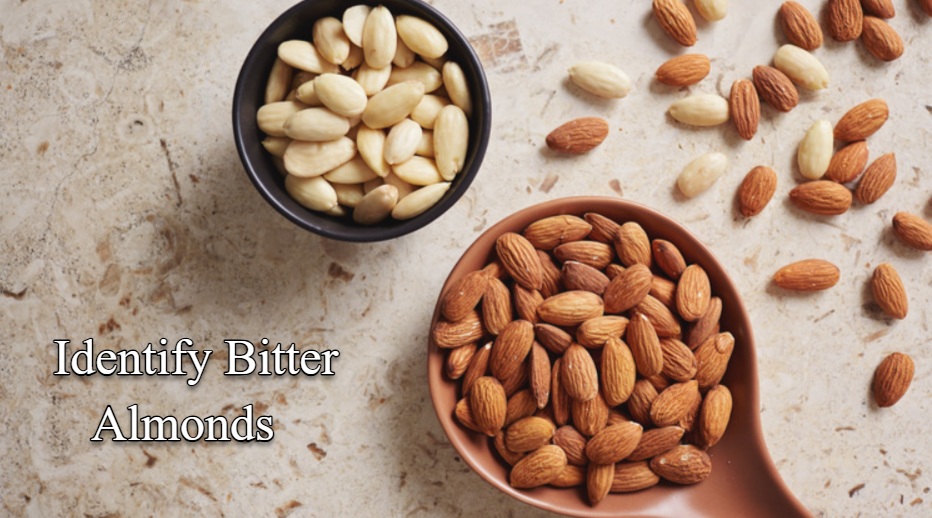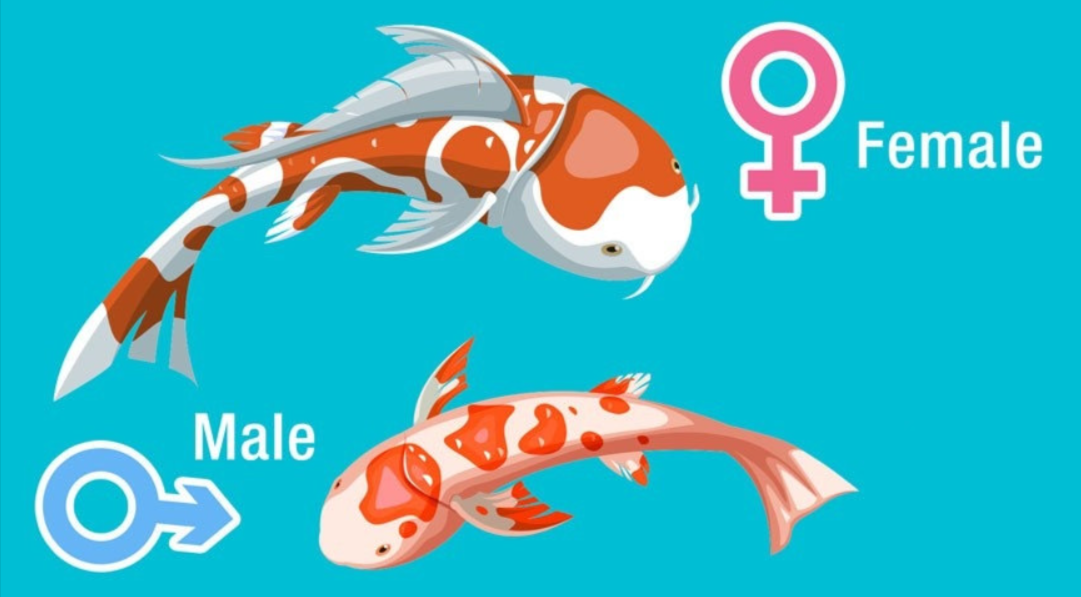Life Style
International Mother Earth Day: Origin, History and Themes

International Mother Earth Day which is celebrated annually in the month of the 22nd of April and is a worldwide call for action to help protect our planet and guarantee sustainability for all. It was established through the United Nations in 2009 This day is a celebration of our responsibility to the Earth as our common home and emphasizes the interdependence between humans as well as the natural ecosystems which support us. It reminds us that we all share a the responsibility of reducing environmental problems and ensure the health of the generations to come.
This article examines what is important about International Mother Earth Day, its origins, themes, and actions we can do to contribute meaningfully.
The Origins of International Mother Earth Day
The idea of Earth Day dates back to 1970 in which millions of citizens in the United States mobilized to protest the degradation of the environment. The grassroots movement, fuelled by the growing awareness of the effects of pollution and its effect on the human body and health, paved the way for the emergence of the environmental movement that is now in its modern form.
The United Nations took this initiative to the world scene in 2009. by formally declaring the 22nd of April 22 as International Mother Earth Day. The phrase “Mother Earth” reflects the interconnectedness between all living creatures and stresses our shared obligation to take care of the earth.
Why is International Mother Earth Day Important?
- Highlighting Environmental Challenges
International Mother Earth Day brings attention to urgent environmental issues like deforestation, climate change, decline in biodiversity polluting, and non-sustainable consumption habits. It urges urgent action to tackle these issues before they become irreparably dangerous thresholds. - Promoting Sustainable Development
The event highlights the necessity of balancing economic growth alongside environmental protection. It is in line closely with United Nations Sustainable Development Goals (SDGs), especially those that focus on the fight against climate change as well as clean energy and conservation of biodiversity. - Encouraging Global Collaboration
Environmental issues transcend borders. International Mother Earth Day fosters an understanding of the global community and encourages countries, organizations and individuals to join forces to save the planet. - Inspiring Individual Action
The holiday encourages people to think about their relationship to nature and develop green practices, like decreasing the amount of waste they produce, conserving water, and promoting renewable energy projects.
Themes of International Mother Earth Day
Every year each year, every year the United Nations selects a theme to focus efforts across the globe and to raise awareness about specific environmental issues. The themes focus on diverse aspects of the earth’s health and the role of humanity in protecting it. Examples include:
- 2021: “Restore Our Earth” stressed the importance of restoring ecosystems.
- 2022: “Invest in Our Planet” promoted sustainable investment as well as green innovation.
- 2023: “The Need to Act in Harmony with Nature” is focused on aligning human actions with the natural rhythms of nature.
- 2025: “Our Power, Our Planet.”
- 2024: “Planet vs. Plastics.”
The themes guide events, campaigns and debates, stressing the importance of collective action and the need for innovation.
The Role of the United Nations
The United Nations plays a pivotal role in creating and encouraging International Mother Earth Day. Through its initiatives and agencies like the UN Environment Programme (UNEP) and the Framework Convention on Climate Change (UNFCCC), the UN is a pillar of policies and actions to fight the degradation of the environment. The UN’s efforts include:
- Promoting the adoption of renewable energy.
- Promoting sustainable agricultural practices.
- Encourage international agreements such as those of the Paris Agreement to tackle climate change.
Celebrations and Activities
International Mother Earth Day is celebrated with a range of activities across the world, which involve individuals from all walks of existence in efforts to safeguard the natural environment. The most common celebrations are:
- Community Cleanups
Local groups organize cleanup events for rivers, beaches, parks along with other nature areas. They also promote that it’s important to maintain our natural surroundings clear of pollutants and hygienic. - Tree-Planting Drives
The planting of trees is a common tradition on this day in a sign of dedication to reforestation and fighting deforestation. - Educational Campaigns
Universities, schools and even organizations hold seminars, workshops and webinars that educate the public about the environment and encourage sustainable practices. - Climate Marches and Rallies
Environmental groups and activists organize rallies and marches to demand stronger climate policies as well as increase awareness of global warming and its effects. - Art and Cultural Events
Artistic expressions like concerts, art exhibits and storytelling sessions show natural beauty as well as the importance of conserving it.
The Current State of Our Planet
Although International Mother Earth Day is an occasion to celebrate our world’s beauty and diversity it can also serve as an alarm call. The Earth is facing a number of challenges which include:
- Climate Change: The rising temperatures, melting of glaciers, and severe weather conditions threaten ecosystems and the livelihoods of humans.
- Decrease in Biodiversity Habitat destruction and the overexploitation of natural resources has resulted in an alarming decline in the wildlife population.
- Pollution Plastics, chemicals and air pollution affect marine life, ecosystems, as well as human health.
- Unsustainable Resources Use Waste and overconsumption consume the Earth’s resources.
These issues need immediate attention and coordinated action on every level of society.
How You Can Make a Difference
- Reduce your carbon footprint Utilize energy-efficient practices make use of public transportation and limit waste, to reduce the environmental impact.
- Encourage Renewable Energy Advocate for policies that encourage green energy sources like wind, solar, and hydroelectric power.
- Engage in Sustainable Living Select eco-friendly products Reduce single-use plastics and help local sustainable companies.
- You can educate yourself and others Be informed about environmental issues and share your knowledge in your local community.
- Participate Get involved in local projects, become a volunteer with environmental groups and utilize your voice to speak out for changes.
A Vision for the Future
International Mother Earth Day reminds that protecting our planet is more than a duty. It is an opportunity to make an environment that is better for everyone. By encouraging the harmony of nature and encouraging sustainable practices, we can make sure that our children inherit an ecologically healthy and flourishing Earth.
Conclusion
International Mother Earth Day is an effective reminding of the resemblance that exists between humans as a whole and nature. It stresses the importance of collective solidarity across the globe and individual commitment to confront environmental challenges. When we commemorate this day, let’s think about our influence on the earth and take significant steps to protect as well as restore the planet.
We have the capacity to develop an ecologically sustainable and harmonious relationship with nature, ensuring that Mother Earth continues to provide life in all forms for the generations to come.
Life Style
How to Identify Blue Cut Lens? Complete Guide

With the increase in screen time on laptops, smartphones and TVs, shielding your eyes from damaging light is more essential than ever before. One solution that is popular can be found in the Blue Cut Lens, which is a particular type of lens for eyeglasses that is designed to block or block harmful blue light produced by electronic devices.
The exposure to blue light, particularly in the night, can lead to headaches, eye strain blurred vision and can even disrupt sleep cycles. This is why the the demand for blue cut lenses has increased in India. However, a lot of regular lenses are advertised in the form of “blue cut” but do not actually have the feature of protection. To avoid being misled you need to be aware of how to recognize genuine blue cut lens.
Check the Reflection of the Lens
One of the most effective methods to recognize an uncut lens in blue is by looking at its reflection in light.
- Real Blue cut lens If light falls onto the lens, you’ll see reflections of reflection in either purple or blue. This is a sign this lens has blocked absorbing blue light.
- Normal Lens typically reflects green, or any other color.
The test can be performed at home, using the aid of a torchlight, or by checking the light source under the tube or LED.
Make use of to conduct a Blue Light Torch Test
Some online optical stores and kits come with the blue torch with a light and the test card.
- The test card should be placed under the torch, without lens. You will see the dark blue mark.
- Place the lens cut in blue between the torches and the paper. Genuine lenses block the mark, or make it appear very faint.
- If the mark remains bright and clear it isn’t an authentic blue cut lens.
This is among the most reliable ways to verify authenticity.
Check using Screen Glare
Blue cut lenses reduce digital glare. This can be tested by:
- The large laptop or phone screen, both with and without lens.
- If you have a genuine blue-cut lens it is possible that the screen glare is reduced to a lesser extent and the color might appear more warm or less harsh on eyes.
Ask for a Certification or a Brand Warranty
The trusted optical companies (like Lenskart, Titan Eye+, Essilor, Zeiss as well as Hoya) usually offer certificates that verify that the coating is blue. Always:
- For an Lens specification cards.
- Check if the lens is equipped with the blue-light protection system included in the description of the bill or description.
Price Factor
Blue cut lenses tend to be priced higher than regular lenses due to the presence of the coating that is special. If you receive blue cut lenses for the same cost as regular lenses, take care as it may not be authentic.
Comfort Testing
Blue cut lenses will bring about a change within a couple of days:
- Reduction of eyestrain following the use of screens.
- Less irritation or swelling in the eyes.
- More quality of sleep in the evening when you use it.
If you don’t notice any difference it’s possible that the lens isn’t really blue cut.
UV Licht Protection Examine
The majority of blue-cut lenses come with ultraviolet protection (protection of harmful UV radiation from the sun). Contact the seller or verify the specifications to make sure the lens is protected by this feature. It’s an indication of authenticity.
How to Identify Genuine Blue Cut Lens is Important
- Eye safety Lenses made of fakes won’t shield you from harmful blue light, thereby defeating the intended purpose.
- Value for money Blue-cut lenses cost more, which is why it’s crucial to make sure you’re buying genuine protection.
- Comfort Genuine lenses can minimize eye strain, headaches and sleep problems caused by exposure to blue light.
Conclusion
Finding the genuine blue cut lens is straightforward when you know what to look out for. The blue-purple reflection test blue light torch tests, to examining certifications and brands reputation, these techniques assure you that you’re investing in a genuine safety product of your eyes. As we live lives constantly connected to digital devices and devices, selecting the best lens isn’t just about vision but about your overall health and well-being.
The next time you purchase glasses, make sure that the blue cut lens is real and not an advertising ploy. Eyes deserve to have the highest protection!
Life Style
How to Identify Bitter Almonds? Complete Guide

Almonds are among the most well-known nuts in India extensively consumed due to their nutritional value. They are also used in snacks, sweets, as well as traditional medicines. But different almonds aren’t identical. In particular bitter almonds, they are unlike sweet almonds. They contain amygdalin that can release cyanide once processed, making them poisonous in their raw form. It is therefore essential to be aware of bitter almonds prior to eating them to ensure safety and avoid poisoning.
1. Understanding Bitter Almonds
- Bitter almonds are an kind from Prunus dulcis which is primarily grown in the Middle East, including Iran, Syria, and Turkey although tiny quantities can be located in India.
- Like sweet almonds, they’re not designed to be consumed in a direct way because of their toxic properties.
- They are typically employed in controlled quantities to make extracts for flavoring, medicinal, or other uses following processing to eliminate harmful compounds.
2. Physical Specifics of Bitter Almonds
A) Form and Size
- Bitter almonds are typically smaller and have a longer length than sweet almonds.
- The tips of their crests are more pointed and the overall shape is a little smaller..
- Sweet almonds are generally wider, rounder and more plump.
B) Color and Skin Texture
- Bitter almonds generally come with an more dark-colored outer layer with some rougher textures.
- They are lighter brunette or brown with a smooth texture. They are uniform in appearance.
- The contrast between colors isn’t always obvious, but careful attention to detail helps differentiate the two.
C) Shell (if present)
- Bitter almonds are often accompanied by the tougher, more brittle shell in comparison with sweet almonds.
- Certain varieties might be characterized by some varieties with a slight wrinkle on the outer layer and a more smooth shells of sweet almonds.
3. Taste Test (Only under Controlled and safe conditions)
- Bitter almonds derive their name because of their flavor–they are very bitter because of their presence Amygdalin.
- Sweet almonds, to contrast taste light, nutty and refreshing.
- A word of caution: Do not taste raw bitter almonds because they are a source of the cyanogenic substances. Only dried or extracted by roasting are safe to taste in small amounts.
4. Smell and aroma
- Bitter almonds usually produce the mildly sharp or pungent scent that is reminiscent of marzipan or almond extract.
- Sweet almonds possess an subtle, nutty scent that is less strong.
- The smell can be an subtle, but a useful hint when you compare almonds side by side.
5. Scientific Methods to Identify
To identify precisely, particularly for commercial or bulk use:
(a) Chemistry Tests
- Bitter almonds are rich in amygdalin that is detectable by chemical tests in the laboratory.
- In the event of hydrolysis, amygdalin releases hydrogen Cyanide that is absent in sweet almonds..
B) DNA Analysis
- Modern genetic tests can distinguish almond varieties.
- It is useful for commercial or agricultural uses to ensure the safety and quality of almonds.
Quick Comparison Table: Bitter vs Sweet Almonds
| Feature | Bitter Almond | Sweet Almond |
| Taste | Very bitter Toxic raw | Mild, nutty |
| Shape | Pointy, narrow, elongated | More plump, broader, and rounded |
| Skin Color | Dark brown More rough | Light brown Smooth |
| Shell | Sometimes wrinkled, harder | Smoother, thinner |
| Smell | Pungent, sharp | Mild, nutty |
| Chemical Compound | Amygdalin (cyanide precursor) | Amygdalin is not present. |
Precautions
- Do not consume raw bitter almonds, especially in huge amounts.
- Use only processed bitter almonds to cook with or for medicinal purposes.
- When purchasing almonds, be sure to verify size, shape and color of the skin, then find them through trusted vendors.
- Inform your children and other family members not to mistake bitter almonds as sweet as a small amount of bitter almonds that are raw can lead to poisoning with cyanide.
The Final Words
To identify bitter almonds, you must pay concentration on the shape dimensions, size, color flavor, and smell. Their natural bitterness and chemical makeup make them harmful if consumed raw, they are safe to consume in their use in medicinal and culinary preparations. When you know these features and selecting almonds with care and responsibly, people can benefit from the benefits of almonds’ nutritional value in a safe manner, avoiding the risk that are associated with bitter varieties.
Life Style
How to Identify Male and Female Fish? Complete Guide

For those who are interested in fish, breeders as well as aquarium enthusiasts in particular, discerning the difference between genders of fish is vital to breed, maintaining an enviable population, and knowing the behavior of fish. While in certain species, the distinctions are subtle but in other species they can be rather noticeable. A proper identification of the species ensures success in breeding and can help avoid aggression, overpopulation or strain in tanks.
1. Learning about Sexual Dimorphism in Fish
- Sexual Dimorphism is a reference to physical differences that exist between the male and female species in the same species.
- The differences are evident in the color, size and shape of the fin, body structure and the way they behave.
- There are many species that exhibit obvious dimorphism. Some require careful examination or even specialist methods such as venting.
2. Size Variations
- In many species of fish females are larger and more round because they are the ones who carry eggs.
- Males are typically smaller and thinner and are built for agility and chase after females during mating.
- Example of Guppies females are bigger and have a round abdomen and a rounded abdomen, whereas males are slimmer and slimmer.
3. Patterns and Colors
- Male fish typically possess brighter colors and distinct patterns to draw females.
- Female fish typically are usually duller colors or camouflaged that help them protect themselves from predators when carrying eggs.
- Illustration: Betta fish males have bright, vibrant colors as well as long flowing fins. females are more pale and have shorter fins.
4. Size and Shape
- Males usually are often larger, more elaborate fins when compared with females.
- Females generally are typically longer, rounder fins ideal for egg-laying and swimming with efficiency.
- In the case of species such as angelfish the male’s dorsal and anal fins appear more pointed, whereas females have fins that are round.
5. Abdomen Shape and Body Form
- Female fish could possess an abdomen that is swollen or rounded particularly when they are carrying eggs.
- Males are equipped with sleek bodies to pursue and woo females.
- Example The following is an example: For goldfish females, they appear slimmer during breeding seasons and males are slimmer.
6. Differential Behaviors
- Male fish are known to exhibit aggression or territoriality especially during the breeding season.
- They might chase males or females or display courtship dances or even build nests.
- Female fish generally tend to stay in groups with a focus on eating and laying eggs.
- Examples: Male guppies exhibit courtship behaviors that spread across their tails while females watch or avoid initially.
7. Special Breeding Characteristics
Certain species possess distinct anatomical characteristics which make it easier to identify them:
- The Guppies as well as the Mollies Males have an altered anal fin, also known as the the gonopodium that is used for fertilization.
- Swordtails males sport the “sword-like” extension to their tail fins; females don’t.
- Egg-Layers and Livebearers: In livebearers, males have more sleek with fins that are specialized, whereas in egg-layers, females tend to be more plump.
8. Techniques for subtle species
- Venting Methods: Gently inspect the Genital papilla, which is located close to the fin that is anal. Males are pointed, females are round.
- Observation during Breeding: Males display courtship behavior, and females react by release eggs.
- professional tools: For some uncommon or obscure species, aquarists might make use of magnifying instruments or professional advice to ensure identification.
Quick Comparison Table: Male vs Female Fish
| Feature | Male Fish | Female Fish |
| Size | Smaller, slender | Larger, plumper |
| Color | Bright and vibrant | Muted, dull |
| Fins | Longer, more elaborate | A little shorter, more rounded |
| Abdomen | Streamlined | Rounded, swollen during breeding |
| Behavior | Territorially aggressive, aggressive | Passive, remains in groups |
| Special Features | Gonopodium, tail extensions | There is nothing subtle or insignificant. |
Last Thoughts
The ability to distinguish between gender-specific differences between male and female species of fish a vital aptitude for aquarists breeders, researchers, and other. Through observing the size as well as color form of the fin, structure and behaviour, you are able to discern the genders of the majority of species. The ability to identify accurately allows for efficient breeding, healthy populations of fish as well as a more healthy aquarium. Beginners should start with the most common species such as guppies or bettas which are easy to identify, and you’ll gradually master the subtleties of more exotic species.
-

 Entertainment7 years ago
Entertainment7 years agoDownload Hindi Mp3 Songs
-

 Business8 years ago
Business8 years agoHow payday loans are becoming the preferred mode of choice
-

 SEO & Digital Marketing8 years ago
SEO & Digital Marketing8 years agoGenerate More Views on Your Instagram Profile with Cool Graphic Designs
-

 Auto7 years ago
Auto7 years agoWhat are Some Budget Friendly Bikes in India?
-

 Entertainment7 years ago
Entertainment7 years agoTips and tricks for safe winching
-

 Entertainment7 years ago
Entertainment7 years agoHow might Super Hero Thor going to help other Avengers in the Avenger4?
-

 Entertainment7 years ago
Entertainment7 years agoAmusement and Water Parks to Visit in Delaware
-

 Entertainment7 years ago
Entertainment7 years agoTop Websites To Download Bollywood Songs And Music Free Online







